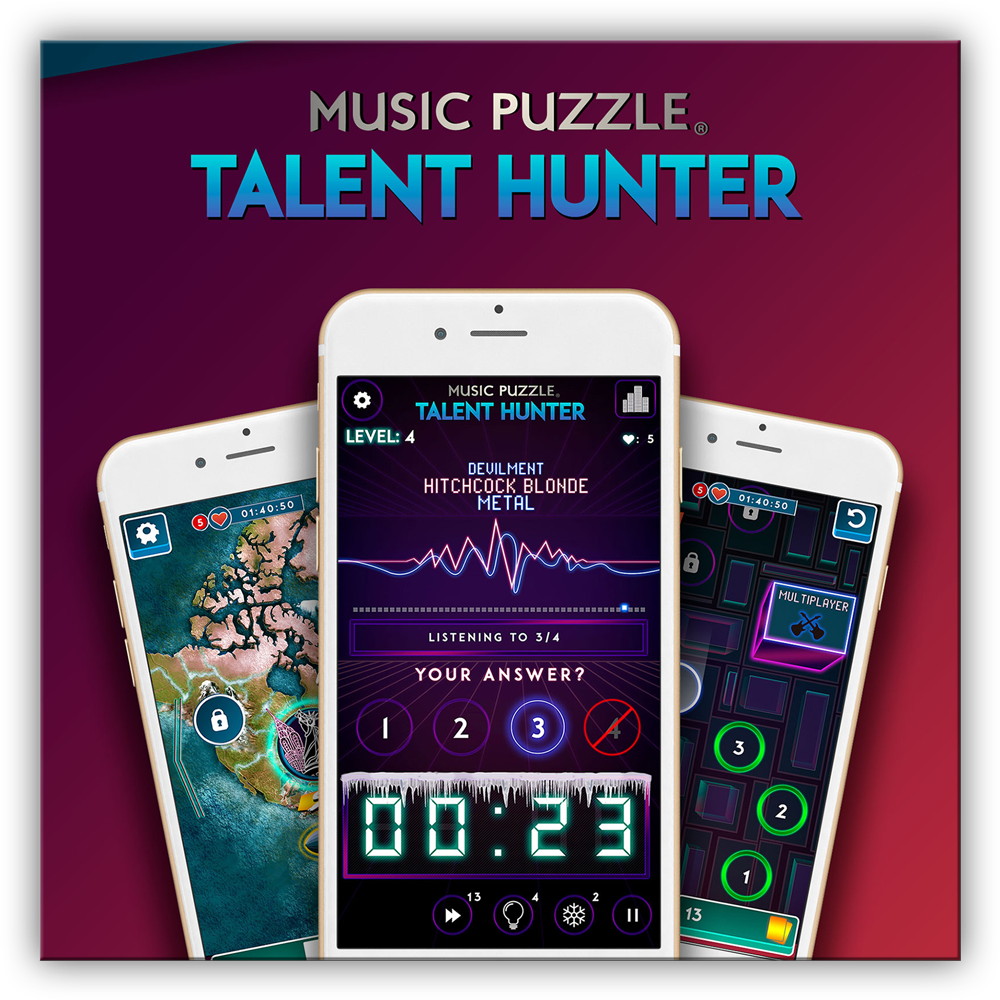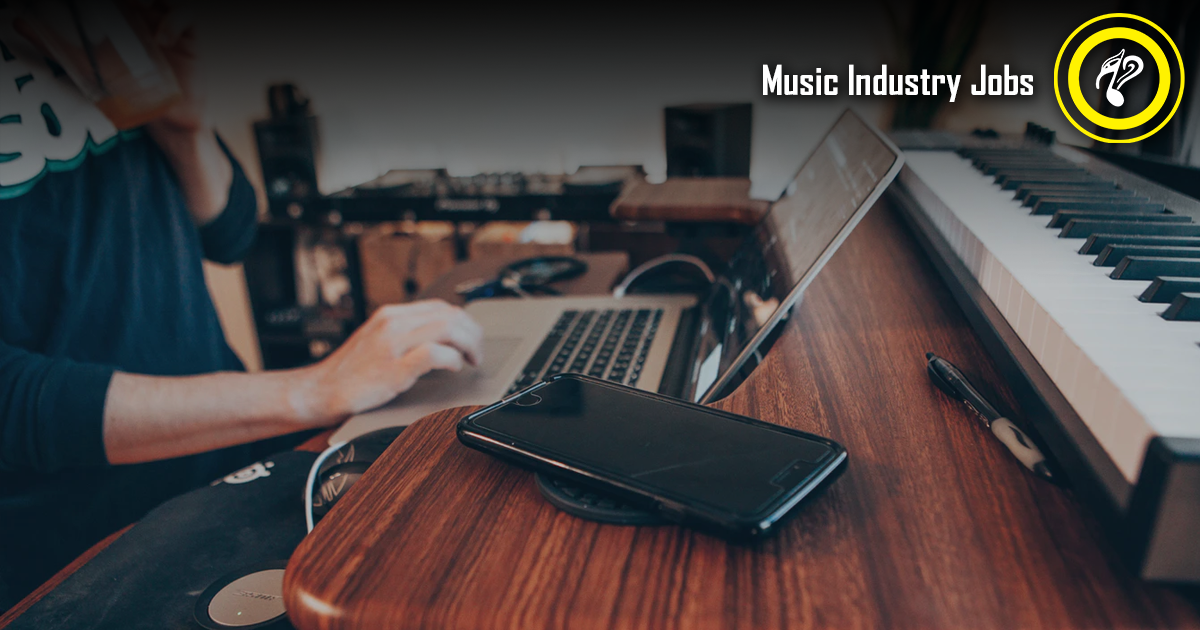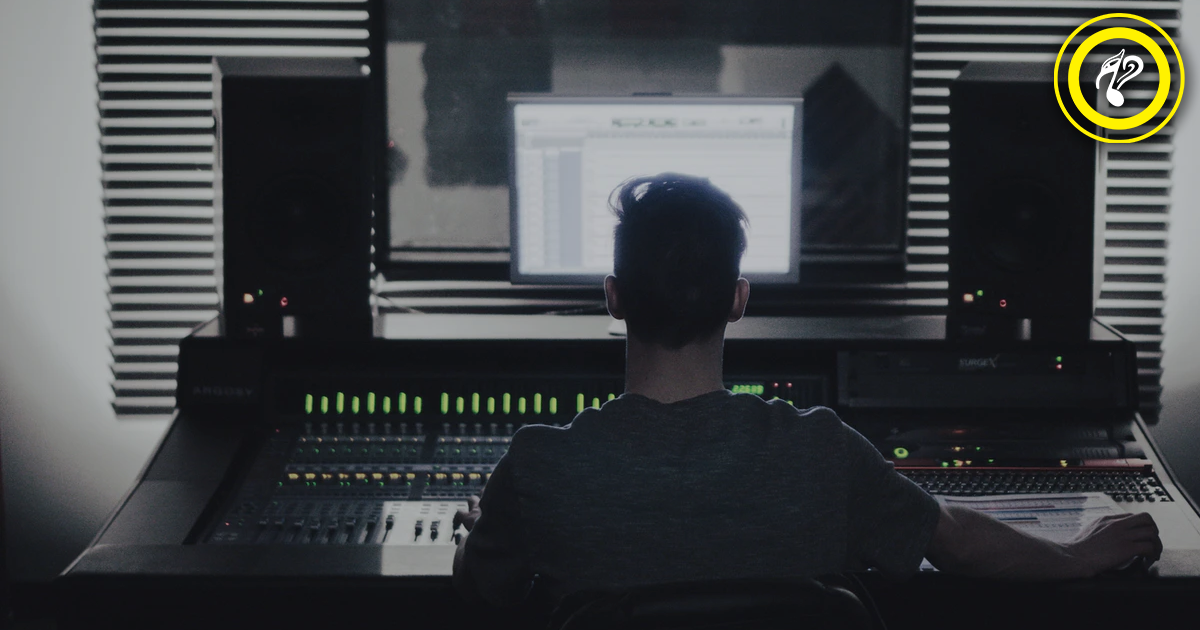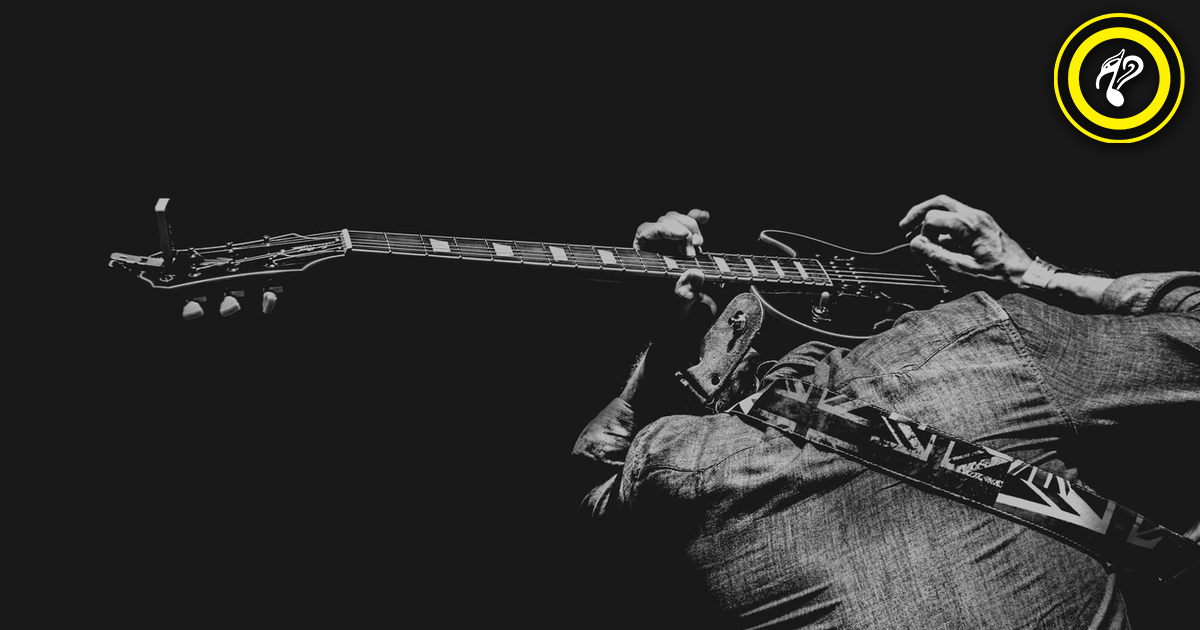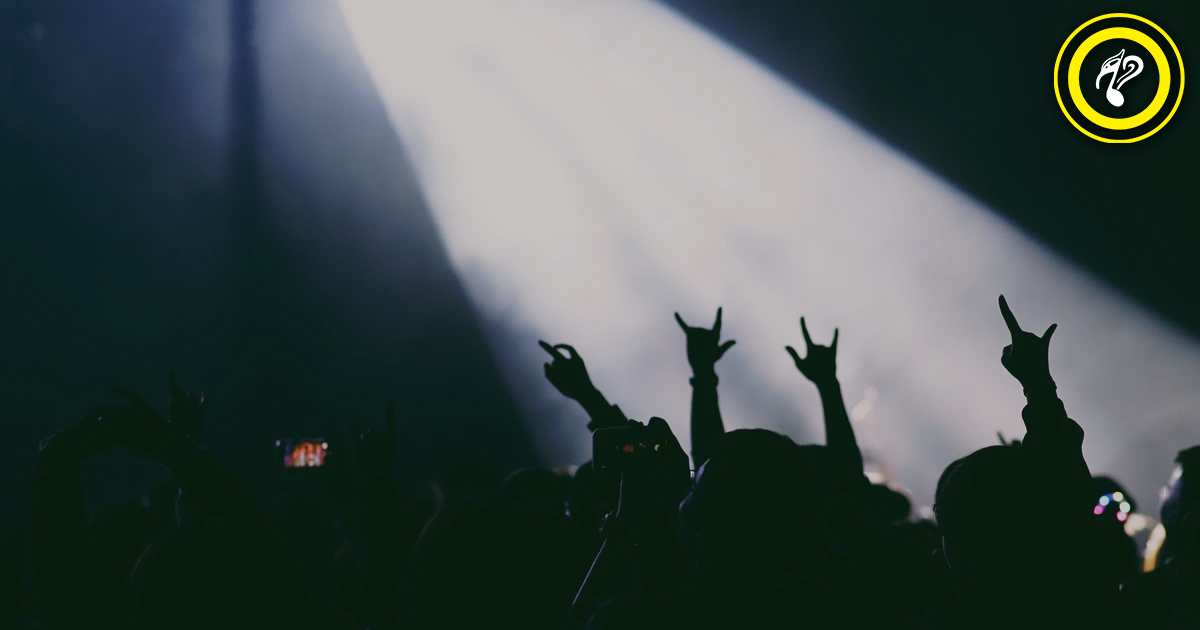The pandemic will widen the gap between artists
Opinion

For a long time, I searched for famous philosophers who have stated that "success brings success", or something similar. Surprisingly, I wasn’t able to find any quote that backed me up. If you investigate what makes success, you’ll find inspiring quotes such as “success is the son of boldness”, that “success is not accidental”, that it is the “fruit of persistence”, that “nothing is impossible” and that “success doesn’t make happiness”.
All of that is probably true. However, it is not difficult to recognize that it should be easier for famous artists to make their music known than for less famous artists.
In other words, "success brings success".
Maybe this expression isn’t inspirational enough to become famous. Or maybe it wouldn’t come from philosophers, but from marketers. It is then that I saw the following remark by author and business mentor Wendy Piersall:
"Google only loves you when everyone else loves you first".
That’s the reality, isn’t it? It’s not only how Google works, but how all social networks work. Beyond that, it is also how our society works: success and fame are non-linear and can be exponential. If you’re a famous musician, social media makes you even more famous, and your music becomes even more known. All that media noise from celebrities hides those who are not. On my Facebook timeline, there are usually at least 10 posts about Elon Musk. While he is quite an admirable man, he shouldn’t be able to fill 50% of my Facebook timeline… I even saw about 20 articles about his new son’s weird name all in one day. Sure, there are always new people in fame’s closed circles, but they’re clearly counted as newcomers.
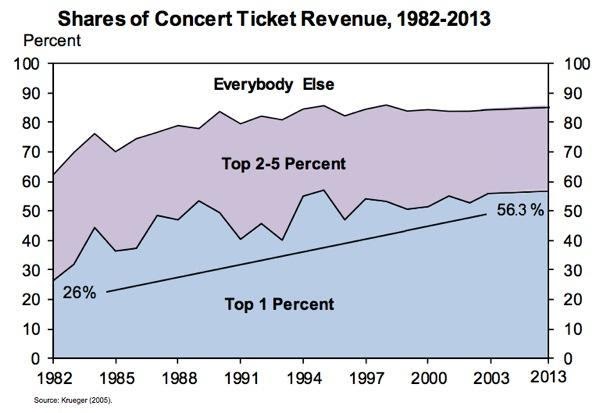
As in many other subjects, when it comes to musical art, recognition generally results in a high level of economic success; from that success, survival and continuity arise: in other words, visibility.
Music streaming platforms like iTunes and Spotify also work within the same fame-based algorithms, like all artificial intelligence or "pseudo-intelligence" based tools.
You live in Mexico? Ah, so we recommend The Weeknd, Dua Lipa, Lady Gaga and Reguetón (particularly Bad Bunny and his not-so-best -friend J Balvin).
The power of democracy under the rules of artificial pseudo-intelligence.
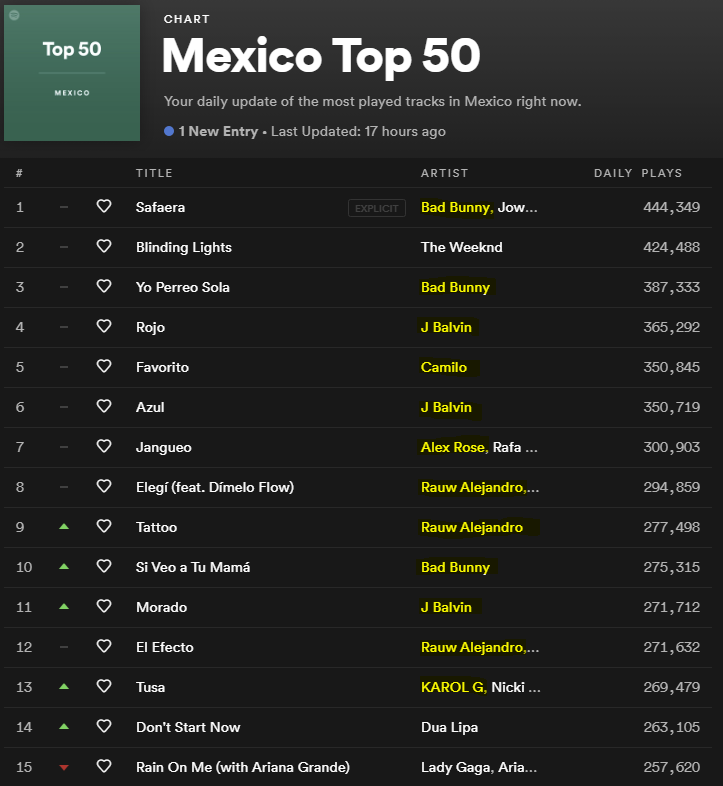
Excluding the mechanisms of paid visibility (for example, when an artist wants Spotify to show it as a priority, which would be interesting to look at further – we’ll try to make it the subject of another article) - these platforms make famous artists even more famous and the others remain hidden, sharing a minimum part of streams (in other words, financial distribution) of those platforms.
Unsurprisingly, an article from The Verge magazine announced that since 2015, streaming was accentuating the income disparity between artists. For example, Drake’s “If You're Reading This It's Too Late” album brought him an estimated income of $6.45M, compared to the estimated $126,000 income of Beach House, who was also in Billboard’s Top 10 that year. In other words, Beach House received 2% of what Drake earned. We can already imagine that for the thousands of less prominent artists, streaming is not a source of sustainable income.
It is known that many musical artists derive most of their income from concerts. But what happens now with the pandemic, when all large groups of people are banned?
Under these circumstances, what are mainly independent artists doing to earn a living?
Some will say that the bands are turning to online concerts, and it's true.
Yet don’t online concerts have the same problem of highlighting only famous artists?
A global parallel can be taken from the mobile video game industry. At the beginning, there was very little publicity from mobile video game makers. At time went on and the industry grew, the cost of advertising began to rise. Now, the installation cost (CPI) of a free game is now considered to be around $2.37 USD for an iOS game. This means for a US resident to install a free game, it’ll cost the video game creator $2.37.
Clearly, the virtual advertising market is limited and can be equally saturated, not even counting the large number of famous artists who started offering free online concerts.
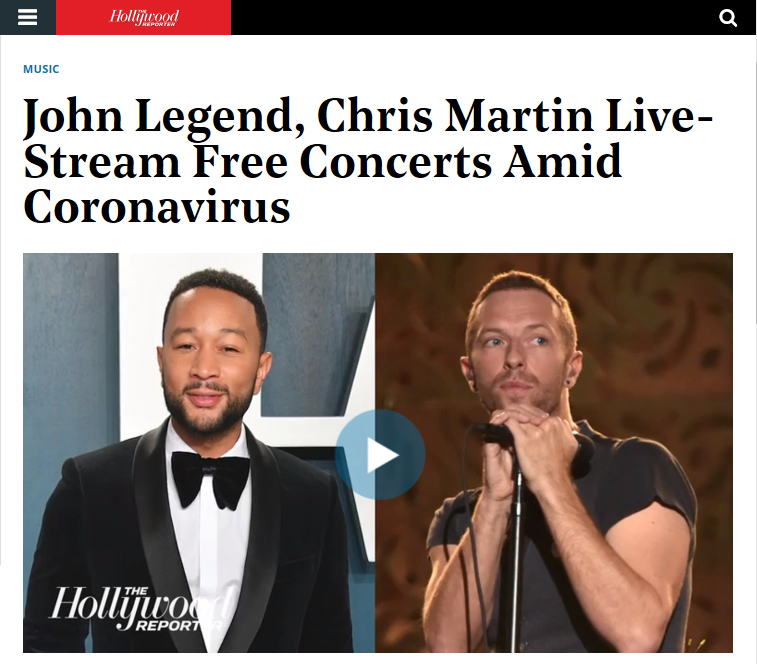
While their intent is good, such actions risk further overshadowing the multitude of independent artists who may truly need financial income.
Could it be that musical plurality will be even more strongly affected in 2020?
We appreciate your comments!
If you enjoyed the article, you'll love these games:


